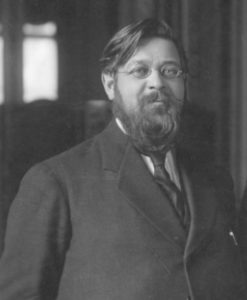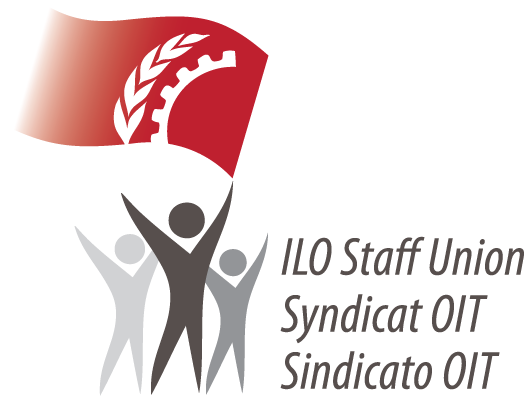The Election of Albert Thomas as the first Director of the ILO / Carl V. Bramsnaes
Category : Centenary - Testimonials
Who would become the first Director of the International Labour Office? That was the essential question during the first session of the Conference which was held in Washington, DC in the autumn of 1919.
The International Labour Conference had been convened in Washington by President Wilson, but the attitude of the United States towards this new world body created by the Peace Conference in Versailles in Paris was uncertain, and the candidates for the election of the director could hardly be anyone than an Englishman or a Frenchman.
The organizer of the Conference was Harold Butler. As a high-level British civil servant, he had played a very important role during the Conference in Paris in the commission which dealt with social questions, and had participated in the elaboration of Chapter XIII of the Treaty, which constituted the basis for the International Labour Organization. It was certainly not an easy task to have organized such a Conference for the first time especially as there was no experience in the subject matter; great skill and never-ending patience were required. Harold Butler had demonstrated his ability as an organizer.
The Conference itself had been a huge success if one looks at the social aspects and the numerous Conventions adopted almost unanimously by the tripartite parties. In these circumstances, Harold Butler’s name was at the top of the list in the private discussions about who should be the first Director of the ILO.
Another name which was likewise mentioned was that of Arthur Fontaine, head of the French delegation to the Conference. Fontaine had been one of the most eminent representatives of the group in Paris preparing the social part of the Peace Treaty. However, beyond these discussions about the names, the idea was also being floated of postponing the election of the DG until a later date.
That was the state of affairs in which the election took place. What happened next? The members of the first Governing Body had been elected by the Conference. One of the member States elected was Denmark; and in my capacity as a member of the delegation of the Government of Denmark, I was able to participate in meetings of the Governing Body. At the first meeting of this newly-elected body, Arthur Fontaine was nominated as Chair, initially on a provisional basis, but, after a debate and under pressure from the workers’ group, he was confirmed.
This election – which may not have corresponded to his own wishes – eliminated Fontaine from consideration as candidate for the job as Director. The workers’ group which wanted a definite decision insisted once again on proceeding with an immediate election of a Director-General – and that contained a surprise!

Albert Thomas
When the votes were counted after the secret ballot, it was observed that there were only three votes in favour of Butler against nine for Albert Thomas, with several abstentions. As there were very few votes cast, they proceeded to a new round of voting which again resulted in a majority for Albert Thomas over Butler, albeit with a reduced majority.
There was no doubt that the workers’ group played a decisive role in this election in the Governing Body and that the employers’ group provided the necessary support in securing the election of Albert Thomas. As far as I know, the majority of government members on the second ballot voted in favour of Butler. The name of Albert Thomas was never mentioned amongst the government delegates to the Conference.
From a technical point of view, Albert Thomas was an outsider in this election, but he deserved to win. Harold Butler was revered as a man possessing remarkable ability and great skill, but to build the ILO, Albert Thomas had higher qualifications.
His abundant dynamism, his immense energy, his exuberant enthusiasm were indispensible qualifications to give this new organization an eminent place in social policy in the world that the ILO should not delay occupying. In collaboration with Albert Thomas, Harold Butler, as deputy director was able to allow the ILO to benefit from his qualifications as an administrator and from his intellect in an efficient manner; he was an excellent successor to head the Office after the death of Albert Thomas; But the ILO would never have become the organization of social policy par excellence without Albert Thomas.
Chapter XIII of the Peace Treaty described the International Labour Organization – as it was left to Albert Thomas to create it.
The last session of the GB in which Albert Thomas participated and his last Conference are still fresh in my mind. Both were in April 1932, at a time when one of the most terrible economic crises shook the world in which unemployment reached unprecedented levels. Everyone who knew Albert Thomas understood that he considered it as an obligation of the Organization to adopt proposals, which would be capable of attenuating the repercussions of the crisis.
Even when he was weakened by a long attack of flu he rose with his energy and his usual combative spirit to defend a resolution before the Governing Body, a commission of the Conference and the ILC itself. It was not an easy task, but the Conference adopted the resolution by a vote of 73 to three. Only the personality of Albert Thomas and the huge amount for respect shown for him would have allowed such an outcome.
That was his last triumph. The Conference ended on 30 April 1932. Eight days later, Albert Thomas died in Paris.
 The Section of Former Officials of the ILO
The Section of Former Officials of the ILO